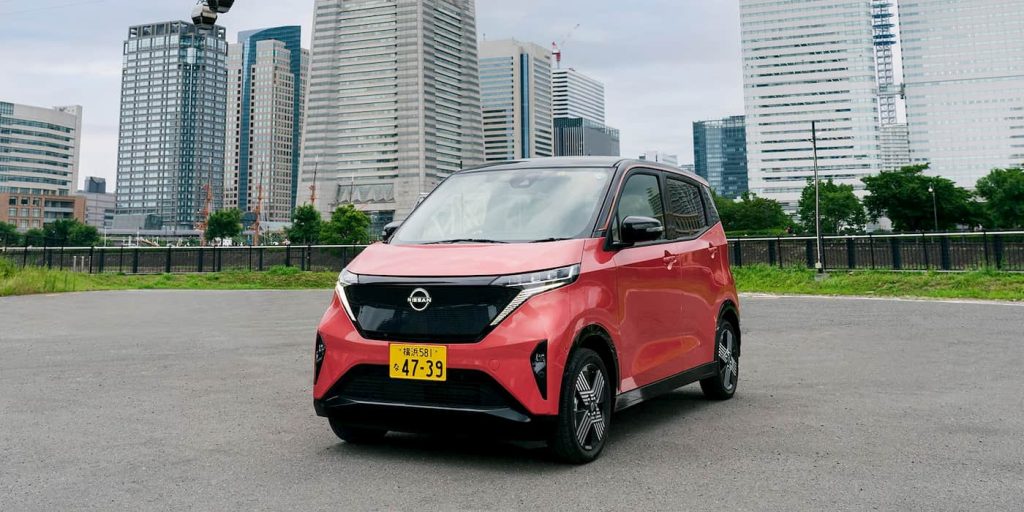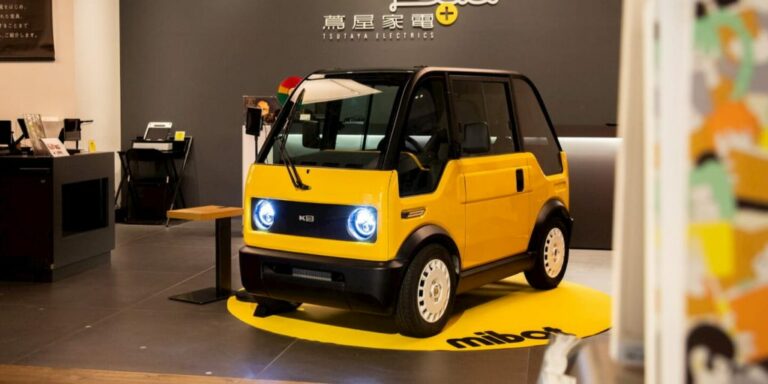A New Player in Japan’s EV Market
Japanese startup KG Motors is shaking up the country’s electric vehicle market with its new mini EV, the ‘mibot.’ Priced at just ¥1 million ($7,000), this tiny car is about half the cost of Nissan’s Sakura, the top-selling EV in Japan. The mibot measures 2,490 mm (98 inches) in length, roughly the size of a golf cart, making it ideal for navigating Japan’s tight city streets.

The mibot is designed for daily commutes, offering a range of up to 100 km (62 miles) and a maximum speed of 60 km/h (37 mph). While its range may seem limited compared to modern EVs, KG Motors argues that its small size and low maintenance costs make it perfect for urban environments. The company’s CEO, Kazunari Kusunoki, was inspired by the prevalence of large cars on Japan’s narrow streets, which led him to create a more suitable alternative.
Initial Reception and Production Plans
After opening reservations in Japan last fall, the mibot secured over 1,000 applications in its first month. As of May, the company has received 2,250 orders, exceeding half of the 3,300 units it plans to deliver by March 2027. Production is scheduled to begin in October, with the first batch of 300 units expected to be delivered in Japan by March 2026. The remaining 3,000 units will be shipped internationally.

KG Motors aims to produce around 10,000 mini EVs annually after the initial production phase. The company is willing to take a loss on the first batch to establish its presence in the market. Kusunoki believes that the mibot can help change the perception that EVs are not popular in Japan, a view often associated with Toyota’s cautious approach to electric vehicles.
Impact on the Japanese Automotive Industry
The launch of the mibot comes at a time when Japanese car brands are lagging in the shift to battery electric vehicles. Nissan’s Sakura, the best-selling EV in Japan last year, sold 22,926 units at a starting price of ¥2.5 million ($17,000). In contrast, the mibot’s aggressive pricing could make it more appealing to budget-conscious consumers.
The success of the mibot may also put pressure on established Japanese brands to accelerate their EV offerings. Meanwhile, Chinese automaker BYD is preparing to launch its own mini EV in Japan, priced around ¥2.5 million ($17,000), potentially further challenging local manufacturers.
As the EV landscape in Japan evolves, the mibot’s impact on the market remains to be seen. However, its innovative approach to urban mobility has already generated significant interest among consumers and industry observers alike.



